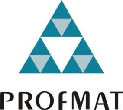Banca de DEFESA: VALÉRIA DOS SANTOS BATISTA
Uma banca de DEFESA de MESTRADO foi cadastrada pelo programa.STUDENT : VALÉRIA DOS SANTOS BATISTA
DATE: 20/08/2025
TIME: 16:00
LOCAL: Google Meet
TITLE:
AN INTERACTIVE GAME AS AN EDUCATIONAL RESOURCE FOR TEXTING SETTINGS
KEY WORDS:
Mathematics Education. Set Theory. Georg Cantor. educational games. BNCC. playfulness.
PAGES: 53
BIG AREA: Ciências Exatas e da Terra
AREA: Matemática
SUMMARY:
Mathematics education in Basic Education requires methodologies that promote meaningful understanding of content and foster the development of logical reasoning, autonomy, and active student participation. From this perspective, this dissertation addresses the teaching of set theory content in the rst year of Brazilian high school, based on the guidelines of the Base Nacional Comum Curricular (BNCC), by articulating theoretical foundations with didactic proposals. The study begins with a historical overview of Set Theory, highlighting the essential contribution of Georg Cantor, regarded as the founder of this theory, whose concepts — such as membership, subsets, universal set, intersection, union, and innite sets — were fundamental to the structure of modern mathematics. The dissertation then presents the specific curricular content taught at this stage of schooling, focusing on the knowledge and skills expected for high school students. It also explores the role of games in mathematics education, based on studies that advocate the use of playful strategies to make learning more engaging and eective. In this context, a board and card game is proposed as a didactic resource to support the study of set theory. The game is described in detail, including its rules, pedagogical objectives, and suggestions for classroom implementation. Furthermore, an evaluative tool is presented to assist in assessing students' learning outcomes resulting from the use of the game. The proposal stands out as an innovative and curriculum-aligned alternative, rearming the potential of games as eective tools in mathematics teaching.
COMMITTEE MEMBERS:
Externa à Instituição - GABRIELA FASOLO PIVARO - EEPCBMA
Externo à Instituição - GLAUBER MARCIO SILVEIRA PEREIRA - UNINASSAU
Interno - STEVE DA SILVA VICENTIM
Presidente - VALDINES LEITE DE SOUSA JUNIOR




